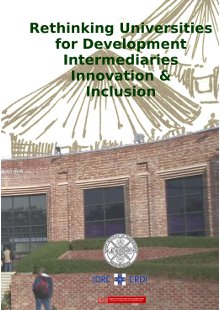KICS is involved with several projects relating to S & T and Development. Some of these projects are undertaken independently which others are through associated organisations or individuals in the network.
The role of Game-changers in Transformative Social Innovation
KICS has been involved in dialogues with sustainable transition and innovation researchers led by DRIFT (Erasmus University Rotterdam, the Netherlands) in a EU project on TRANSIT (TRANsformative Social Innovation Theory). TRANSIT explores the interaction of social innovation with other forms of (transformative) change and seeks to develop a theory of transformative social innovation which is about empowerment and change in society. KICS was invited to participate and share Indian perspectives on social innovation at the synthesis workshop on “The role of Game-changers in Transformative Social Innovation” in which Dr C. Shambu Prasad presented a paper on “Innovating at the Margins: Sustainable Transitions and Game-changing Ideas from SRI in India”. Background information and impressions of the workshop can be found in the workshop agenda, the workshop report , the overview of the paper abstracts and a selection of workshop pictures.
The State and Drought: Villagers' experiences
How do public policies look from the perspectives of citizens in rural areas? How do citizens perceive them? What kind of spaces do they have for collective action to rework the design of public policies? This KICS research study by Dr Chitra Krishnan builds on some of the earlier work on looking at irrigation infrastructure from below (download here) by extending insights on irrigation projects to canal systems in the village of Gubbi in Tumkur district, Karnataka and understanding the existing bottlenecks during implementation of government welfare schemes. This research study supported by KICS seeks to provide insights on public policies as experienced by villagers themselves - especially in drought affected times. It aims to provide a grounded picture of the conditions under which rural lives are circumscribed today.
In this study, Dr. Chitra Krishnan shares the experience of listening to two villagers and compiling five stories relating to different rural development schemes of Gubbi. She explores the connections between these seemingly varied stories belonging to different sectors and tries to understand -1) What is the actual nature of involvement of beneficiaries? 2) What are the potential spaces provided for them to engage with the scheme? 3) The results of their involvement (or lack of it) and 4) The influence of other actors in bringing about results. In examining these aspects, she tries to throw more light on the theme of collective action - when is it needed, when could it be expected and how this is shaped during a drought year.
Report:
The State and Drought: Villagers' Experiences
The Second part of the report is in Kannada as narrated by the villagers.
Universities and intermediaries for socially inclusive development (UNIID)
KICS members coordinated this effort to look beyond current teaching and research roles of the universities and examine its developmental role more closely. The UNIID initiative looks at the role of developmental universities as well as the need for universities to respond to changing contexts and attempts to bring these debates into discussions on university reforms.
UNIID is an exploratory project for a South Asian network of researchers on this theme supported by the International Development Research Centre (IDRC, Canada). The ideas for this work initiated at a workshop in Negombo, Sri Lanka on 2-3 February, 2012. KICS members explored this further in the Indian context with ongoing dialogues and several discussion papers being written to answer the question on how best universities should respond to current challenges and remain active partners in furthering knowledge and development.

Rethinking Universities for Development
Intermediaries, Innovation & Inclusion
Edited by: Prof. Shambu Prasad, John D'Souza
Science, Ethics and Technological Responsibility in Developing and Emerging Countries (SET-DEV)
KICS was one of the lead partners in a three-year (2008-11) project “Science, Ethics and Technological Responsibility in Developing and Emerging Countries” (SET DEV), which was undertaken in order to support research systems and to encourage a socialization of scientific and technological research in India and Kenya. The projects aimed at activating processes of building institutional capacities and skills on science and ethics to bring science closer to society. This was done by defining and understanding perspectives of socialization of science and technology that take into consideration local needs in a multilateral dialogue. The Indian component was coordinated by Knowledge in Civil Society (KICS) and Centre for World Solidarity (CWS) in collaboration with the University of Hyderabad and the University of Maastricht. The Knowledge Swaraj manifesto is available here and the Piloting Knowledge Swaraj involving five case studies is available here.
(Re)conceptualizing Risk through Ignorance: An Investigation through Nanotechnology
KICS along with the University of Hyderabad is involved in an ongoing project on “(Re)conceptualizing Risk through Ignorance: An Investigation through Nanotechnology" as part of the “Nanotechnologies for development in India, Kenya and The Netherlands: Towards a framework for democratic governance of risks in developing countries” led by Maastricht University, Netherlands
Climate and Energy in a complex Transition Process - towards Sustainable Hyderabad
KICS along with Prayas, Pune is involved in an ongoing project on “Climate and Energy in a complex Transition Process - towards Sustainable Hyderabad” led by Humboldt University, Berlin.

